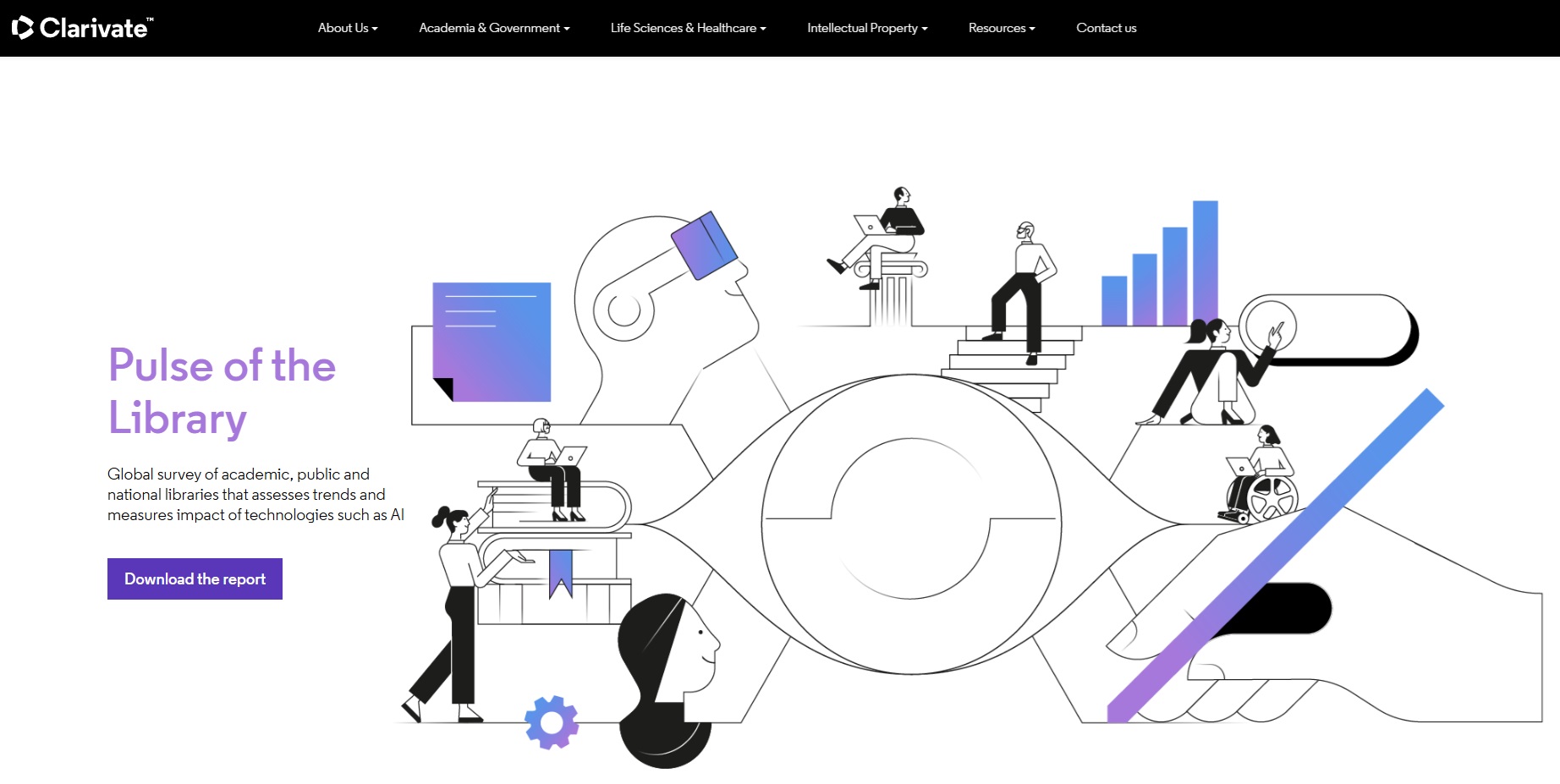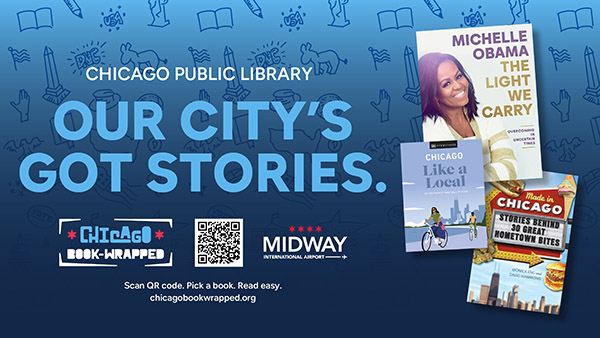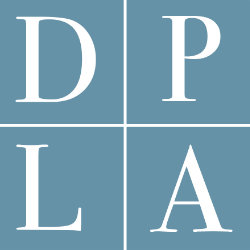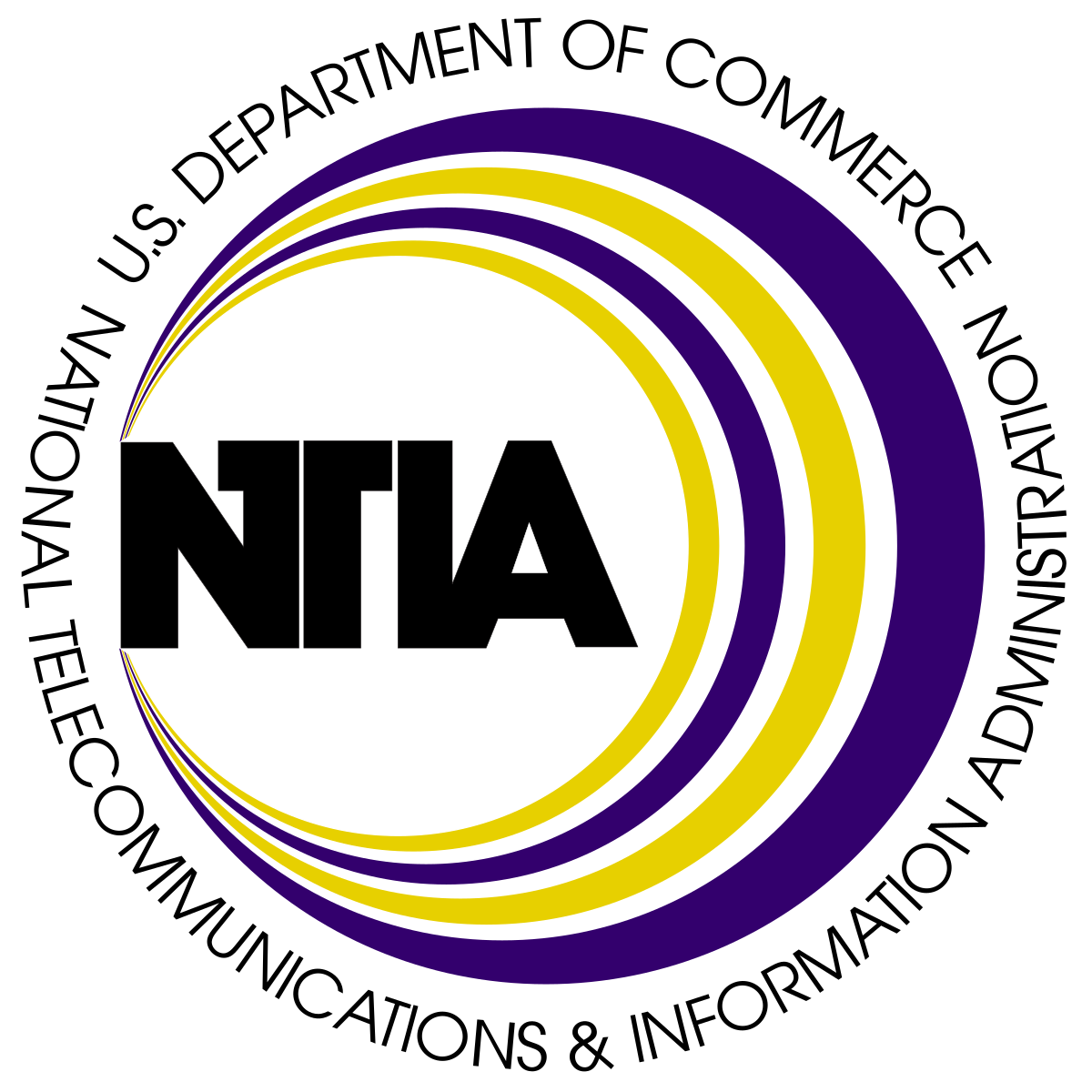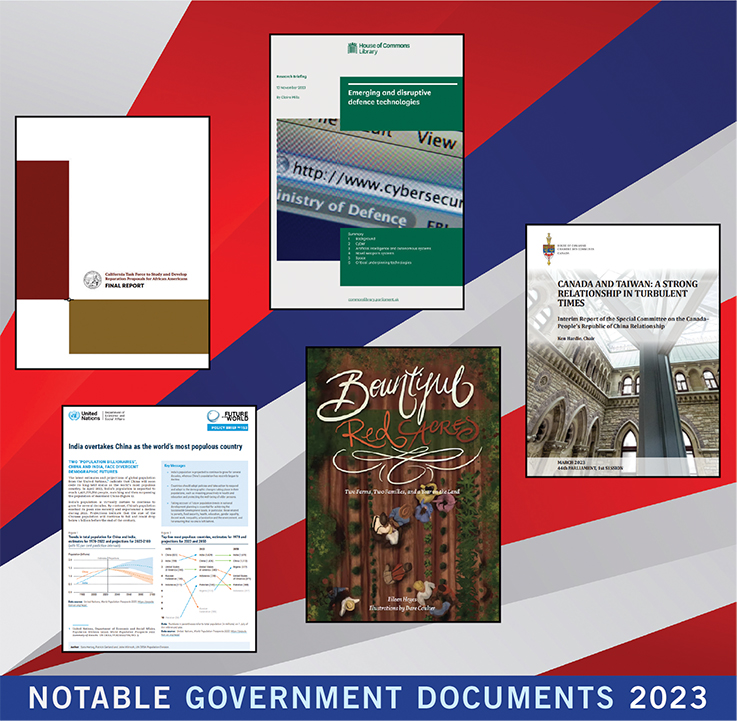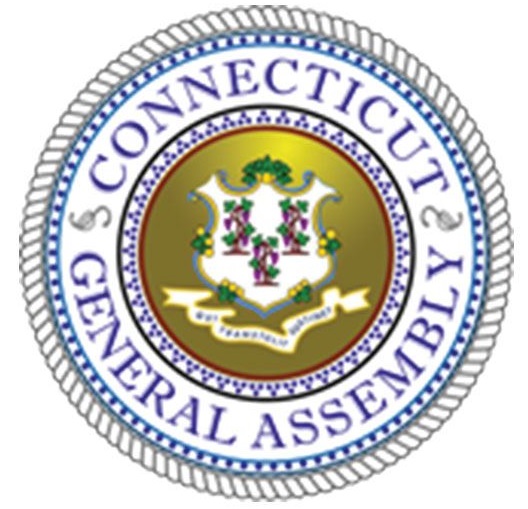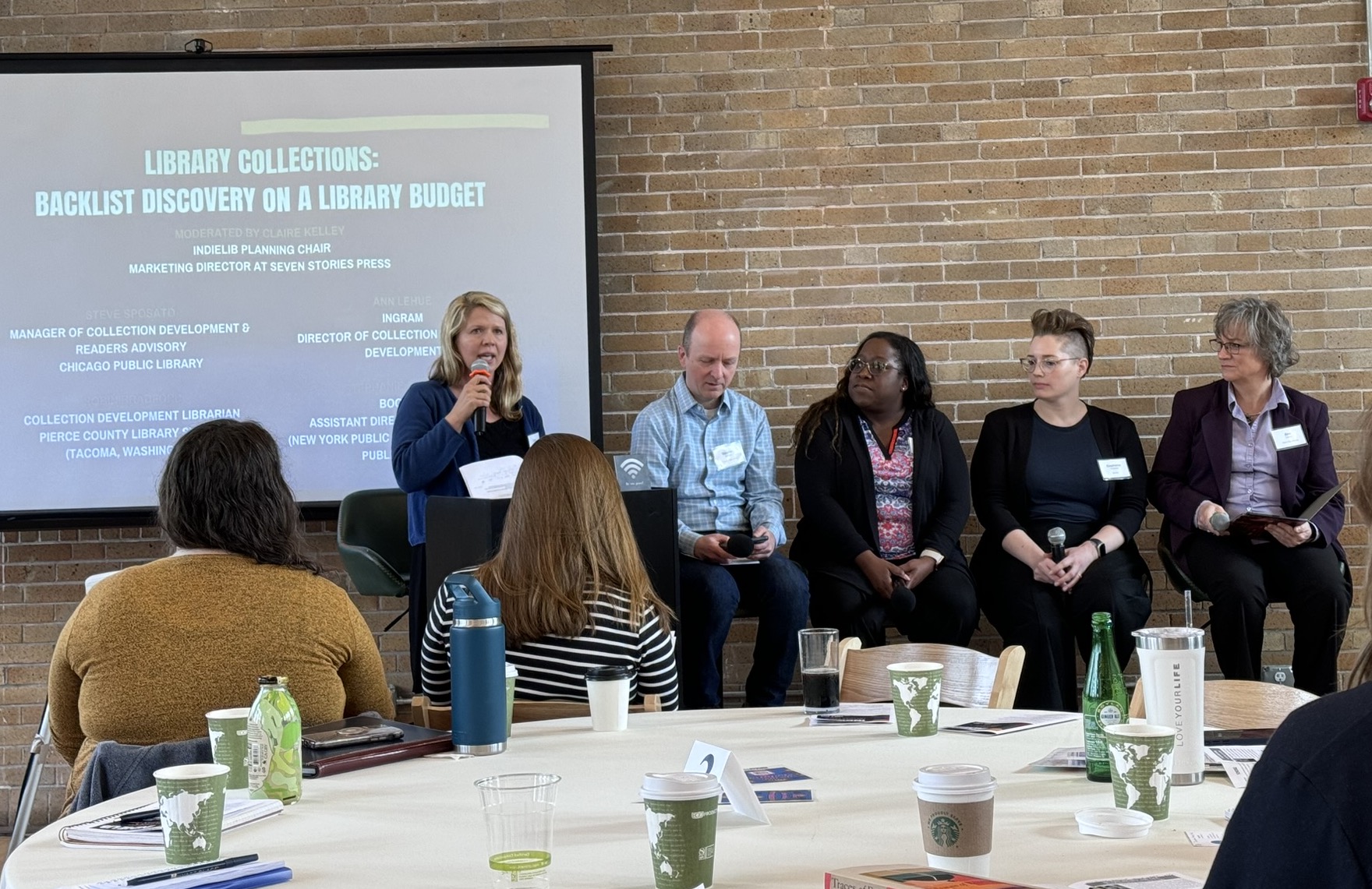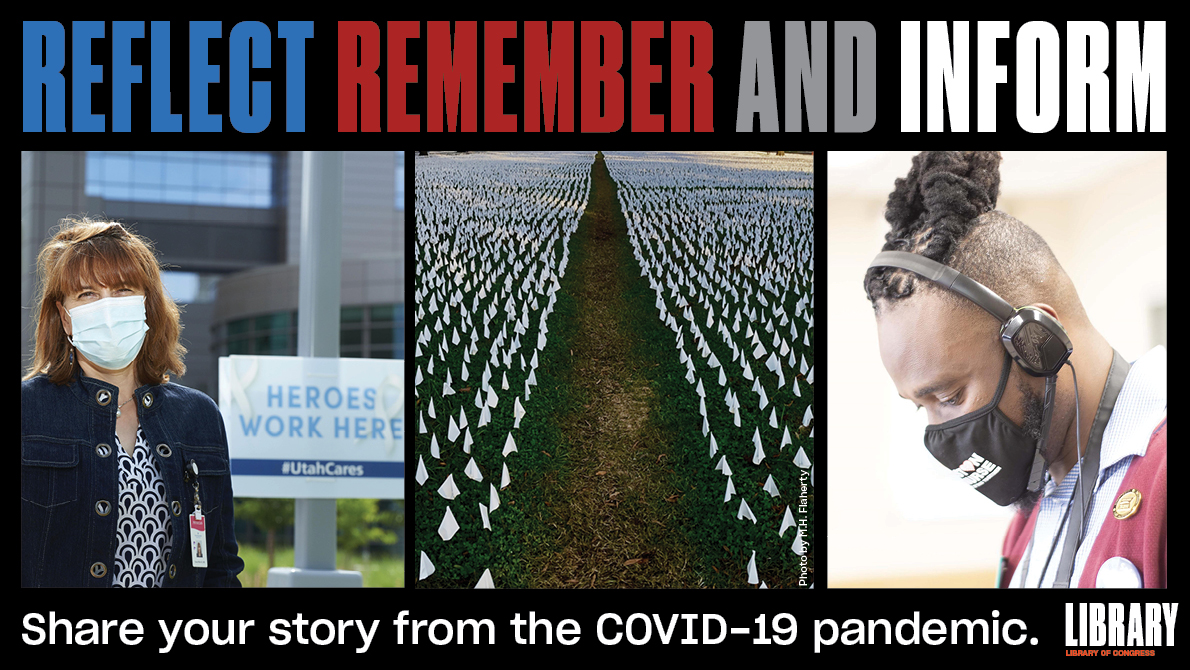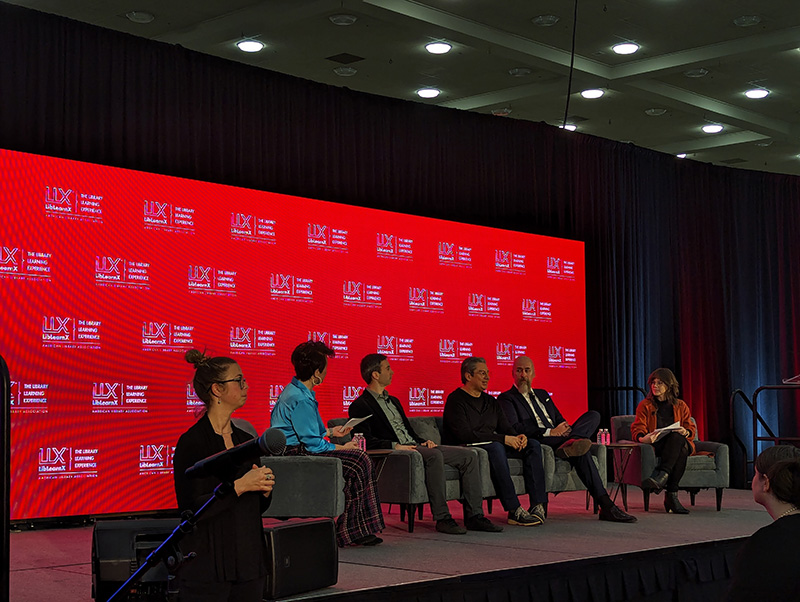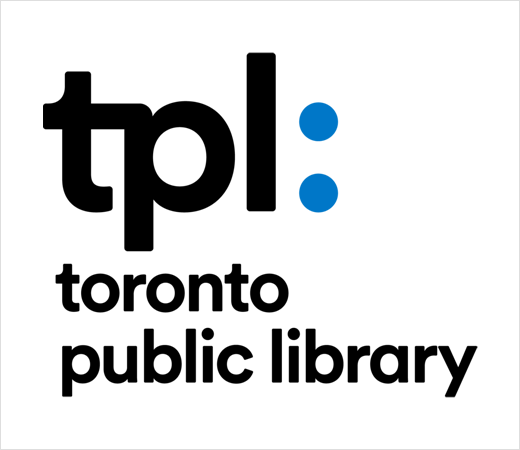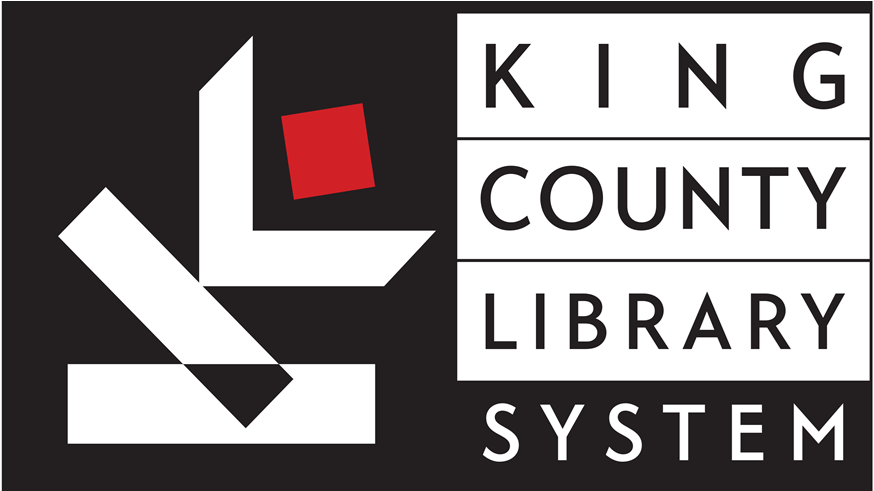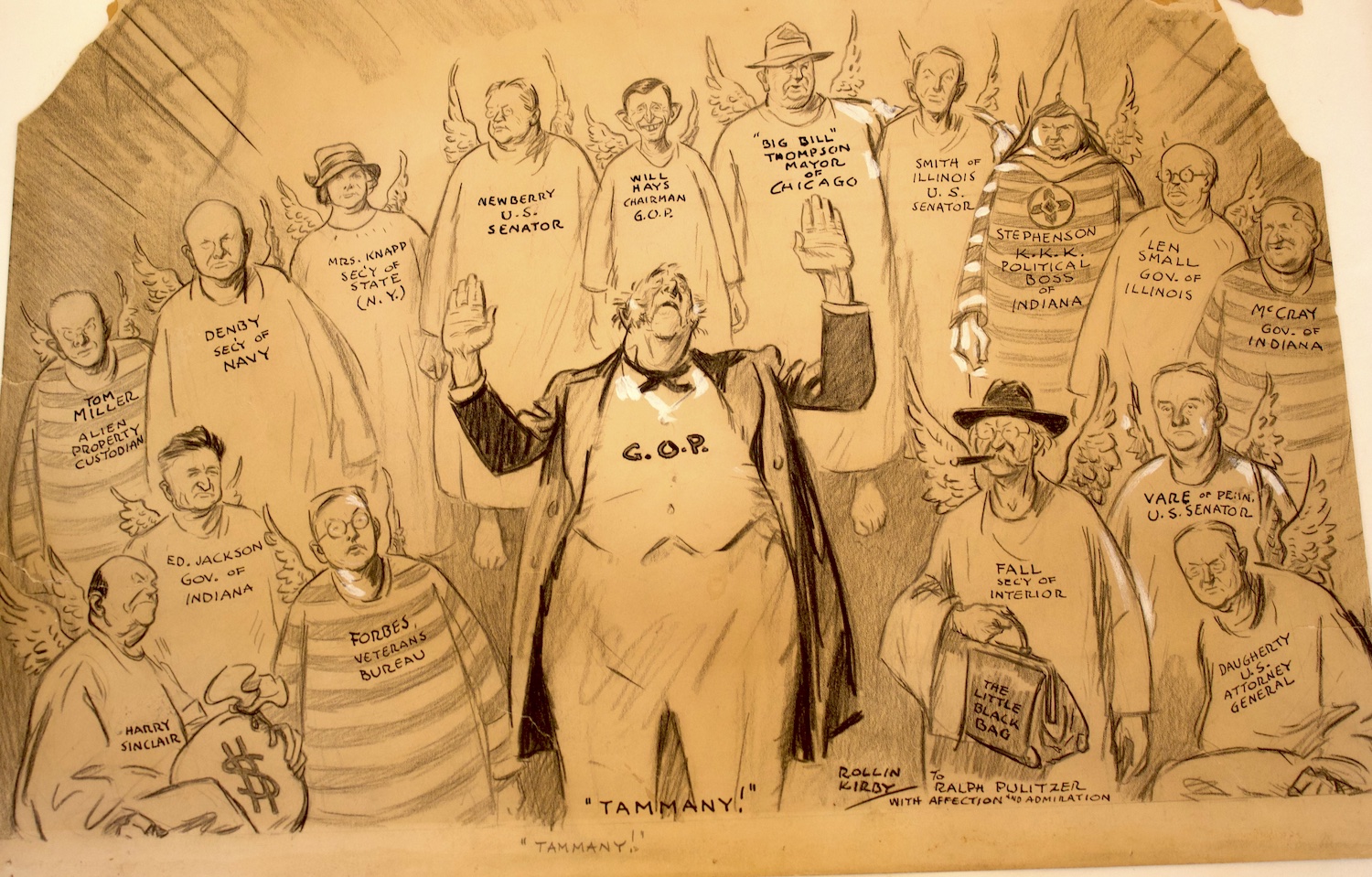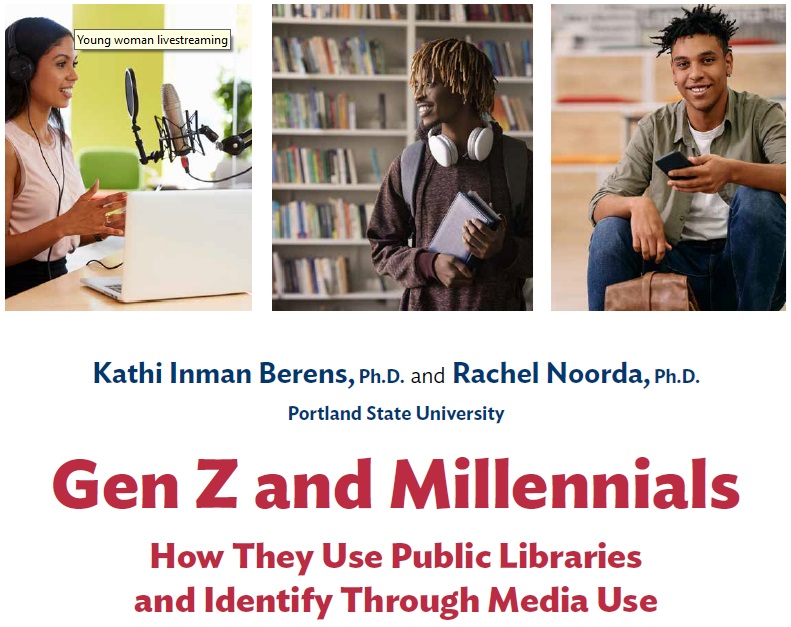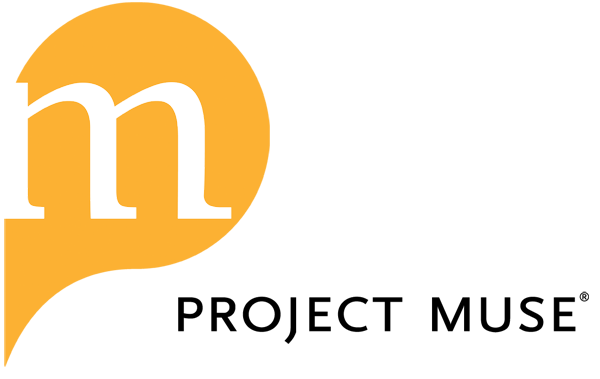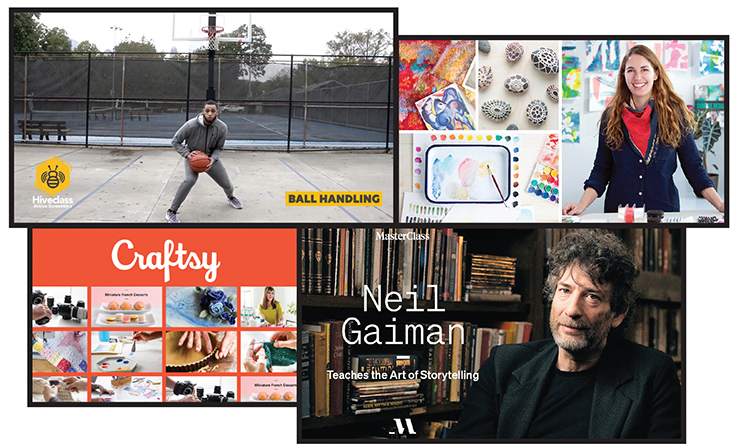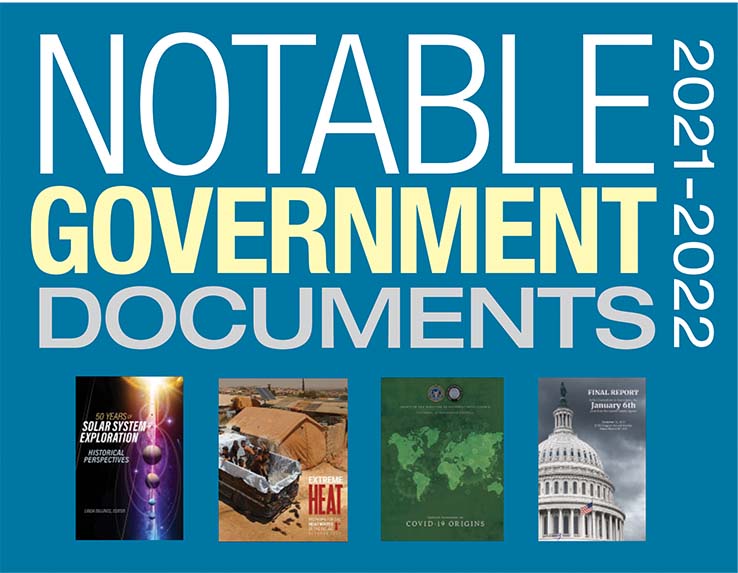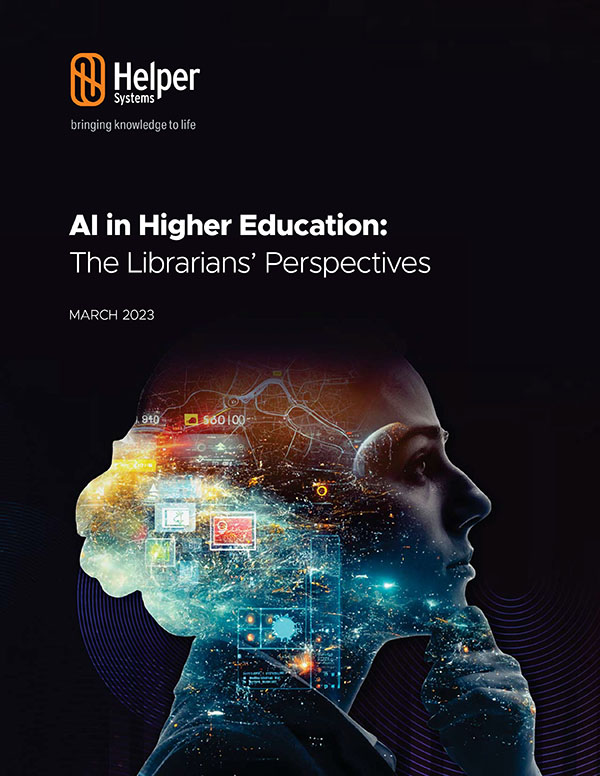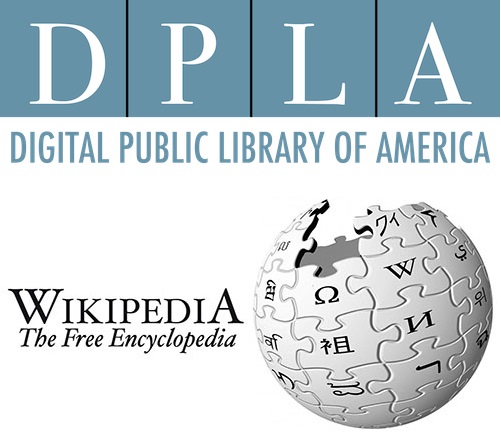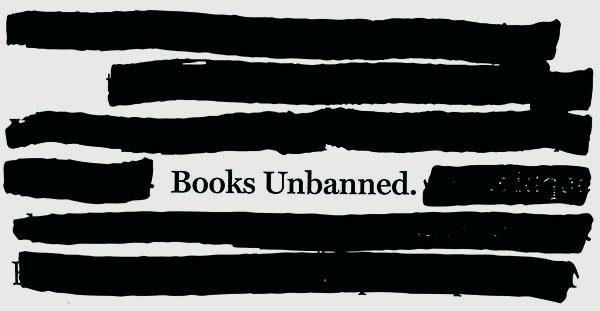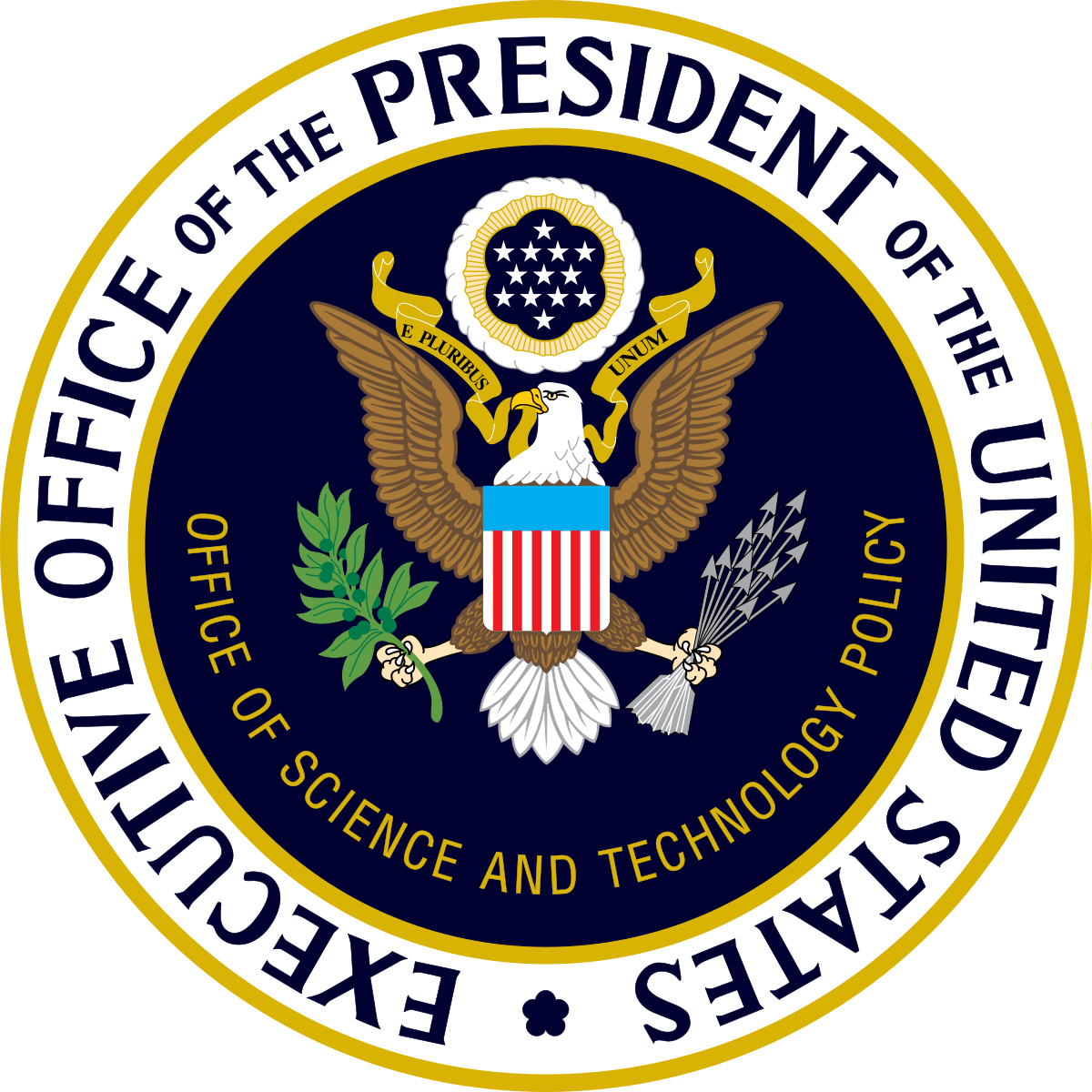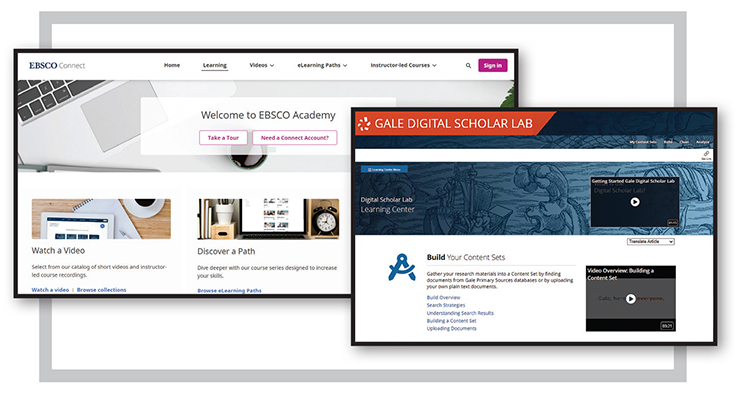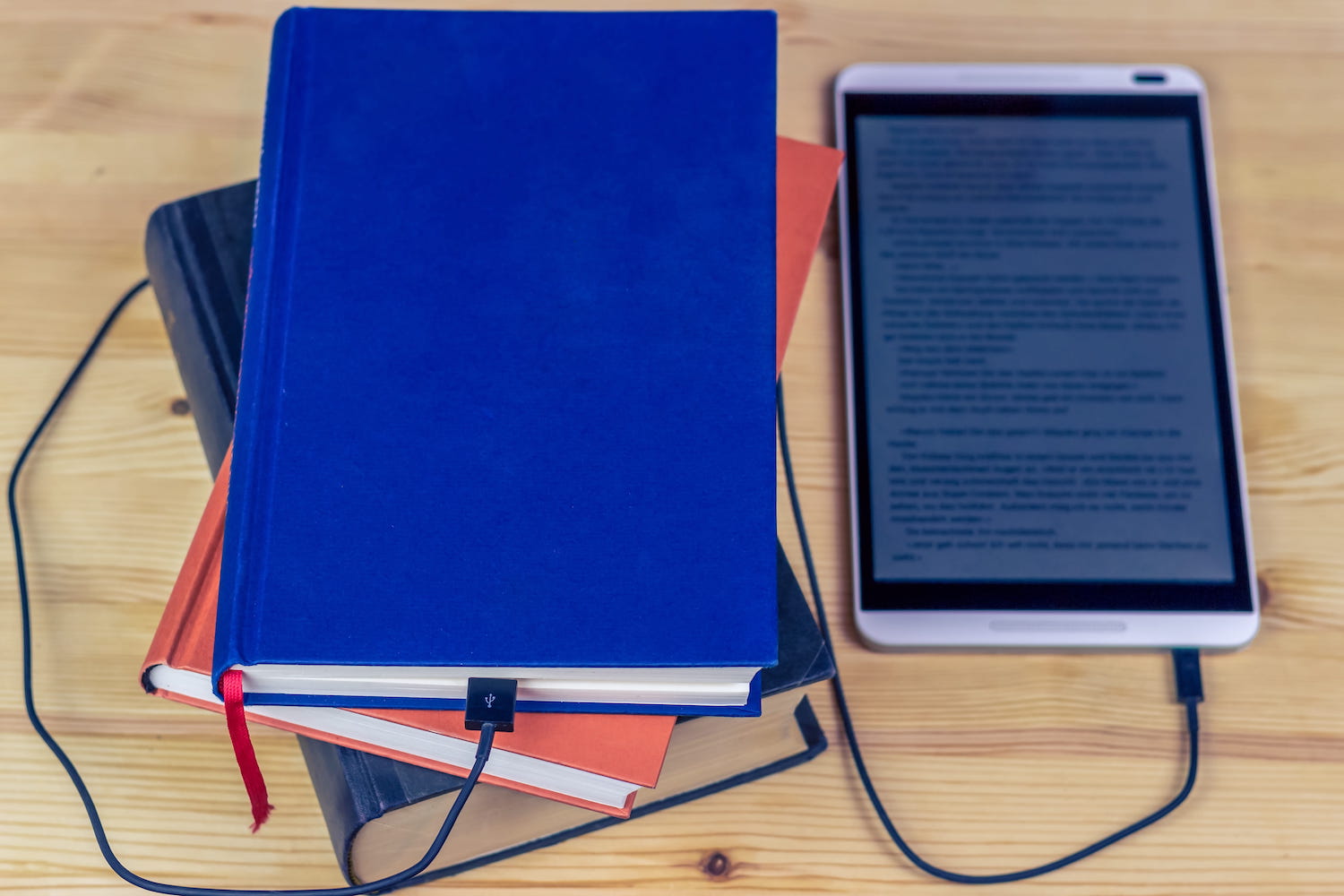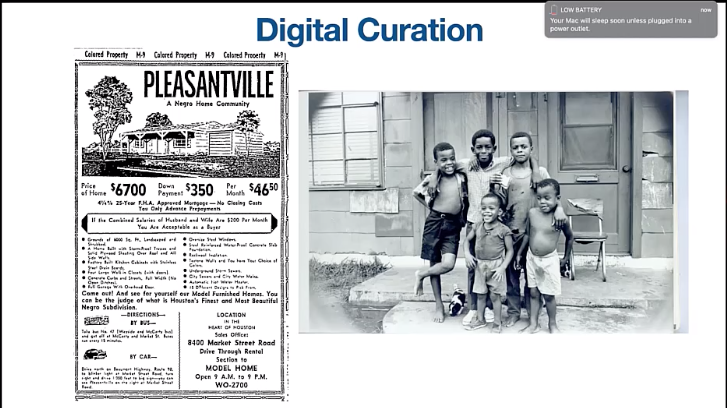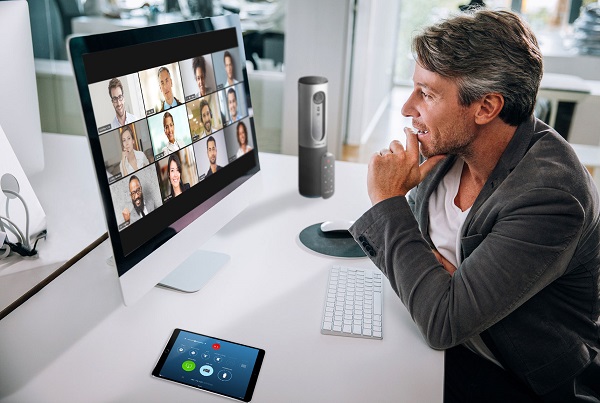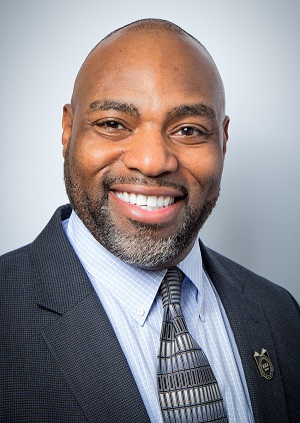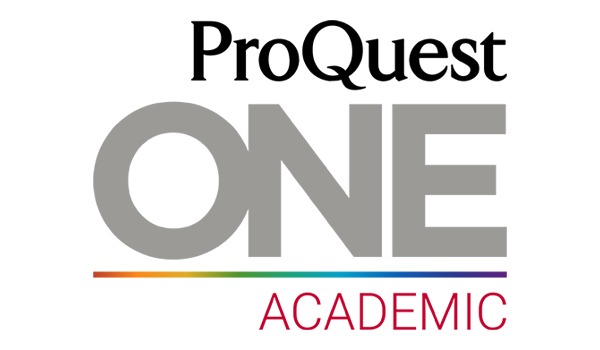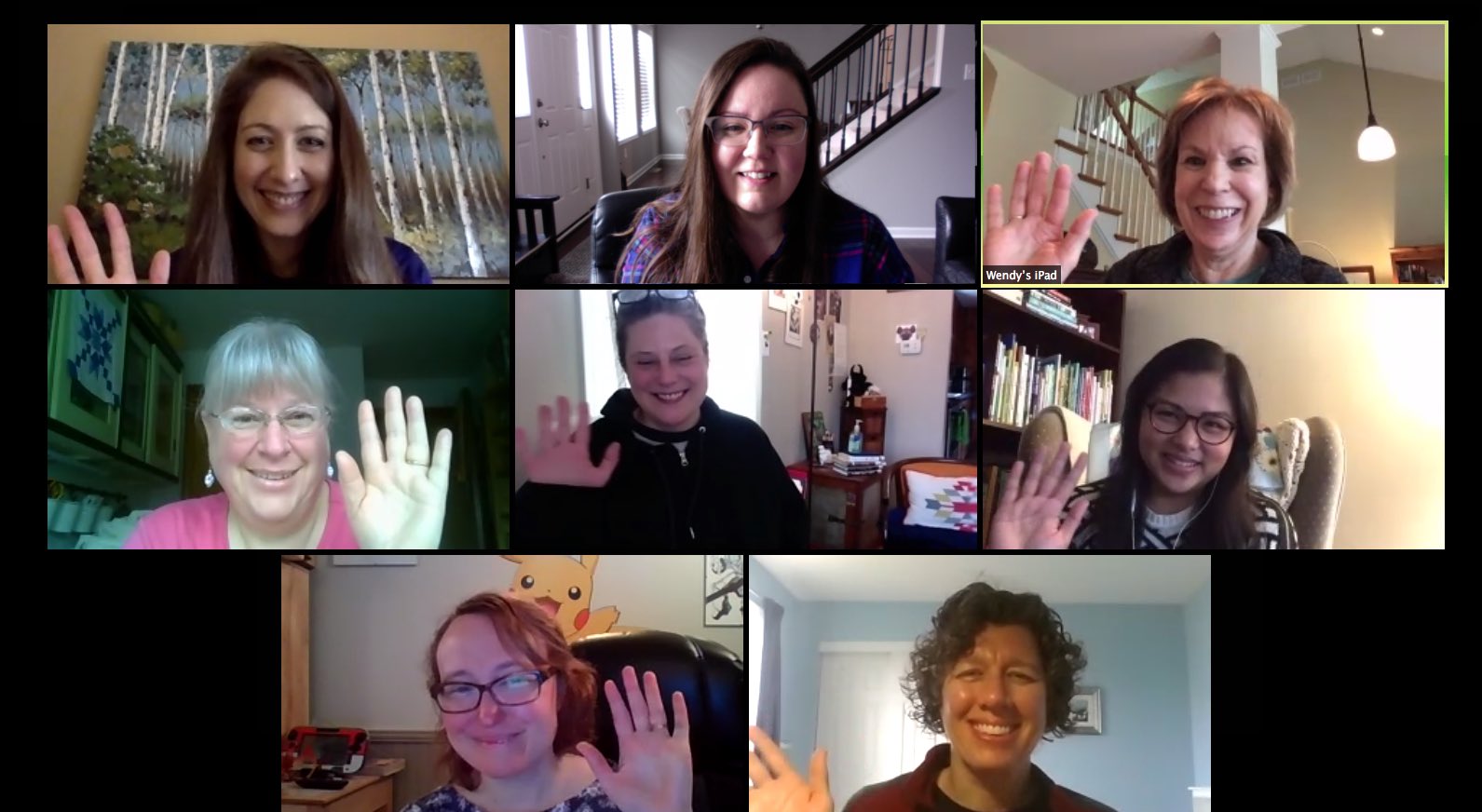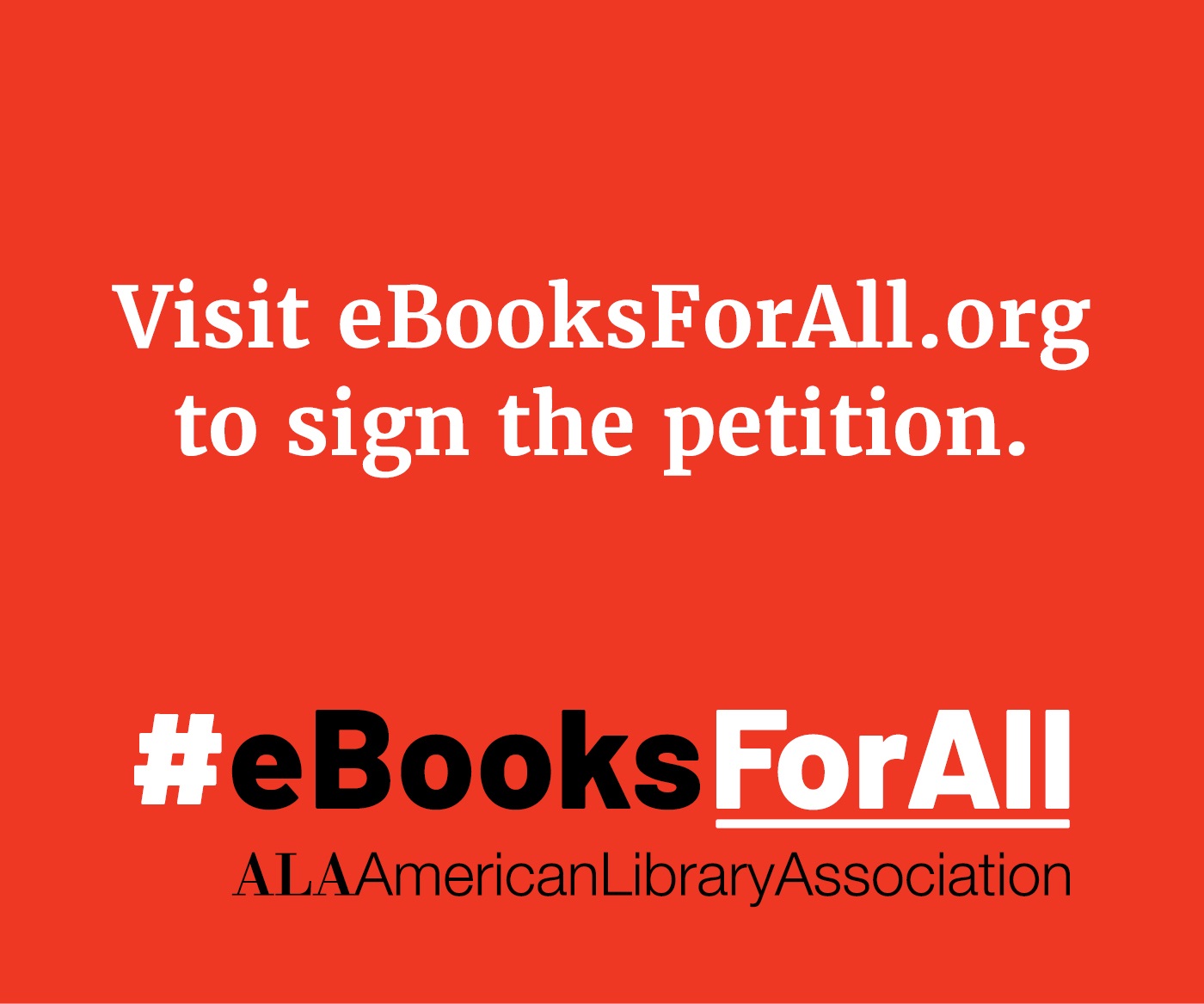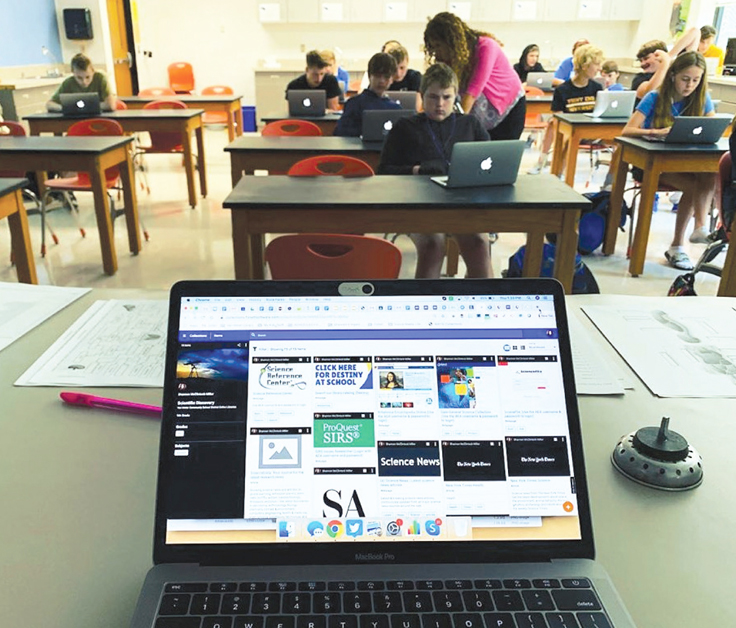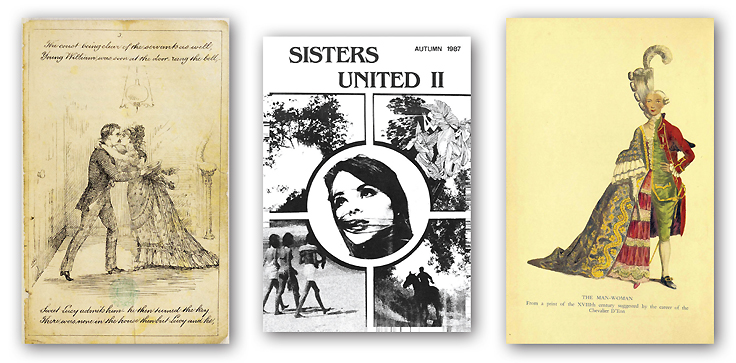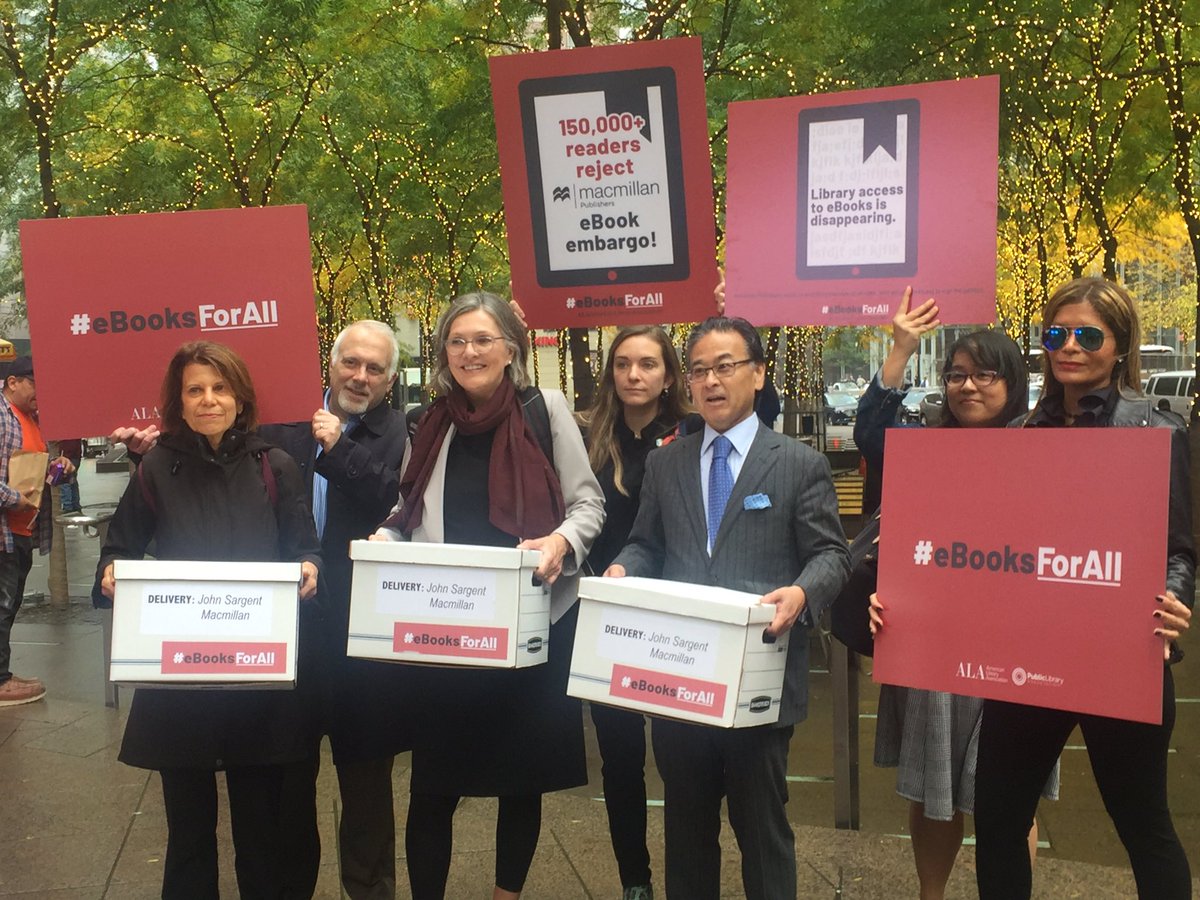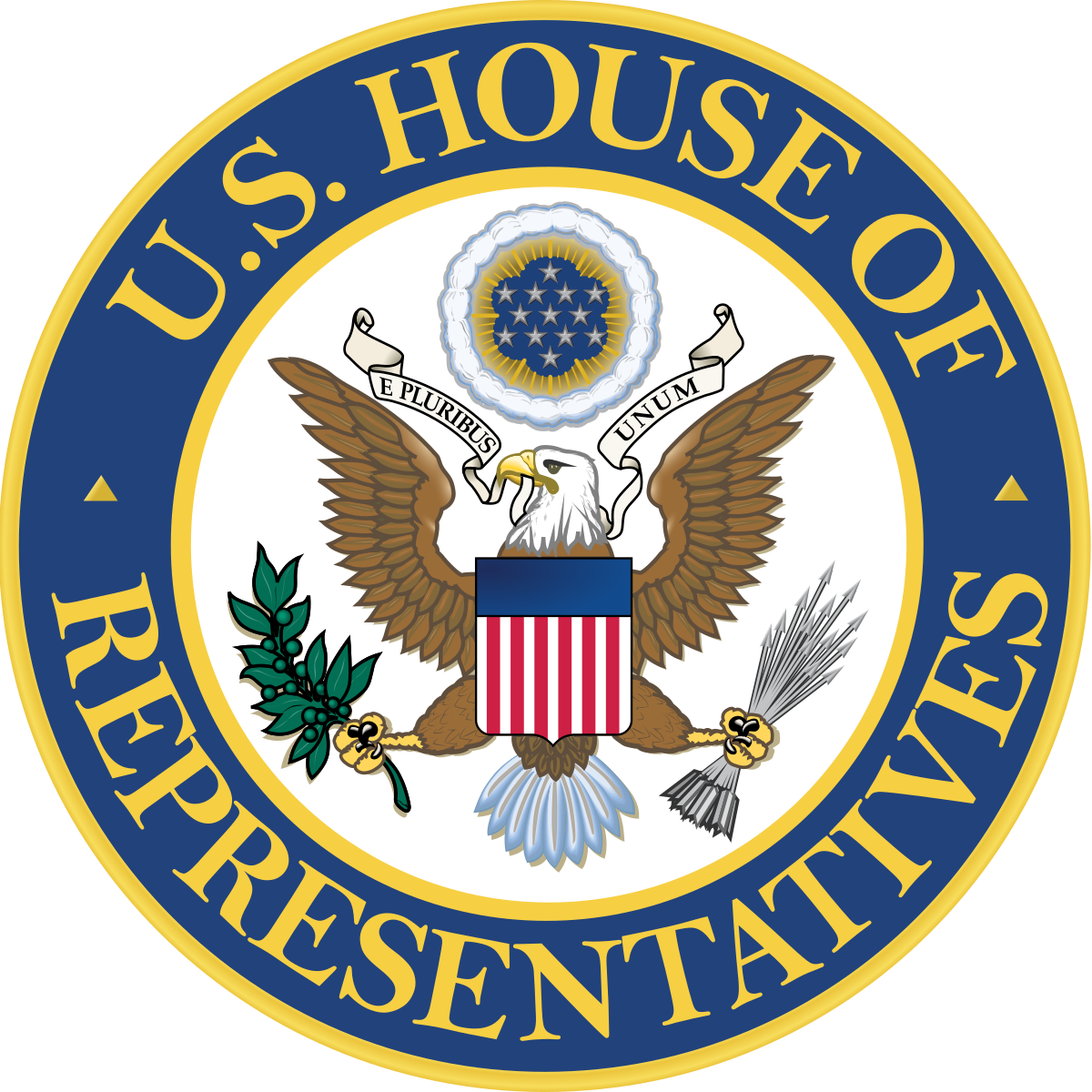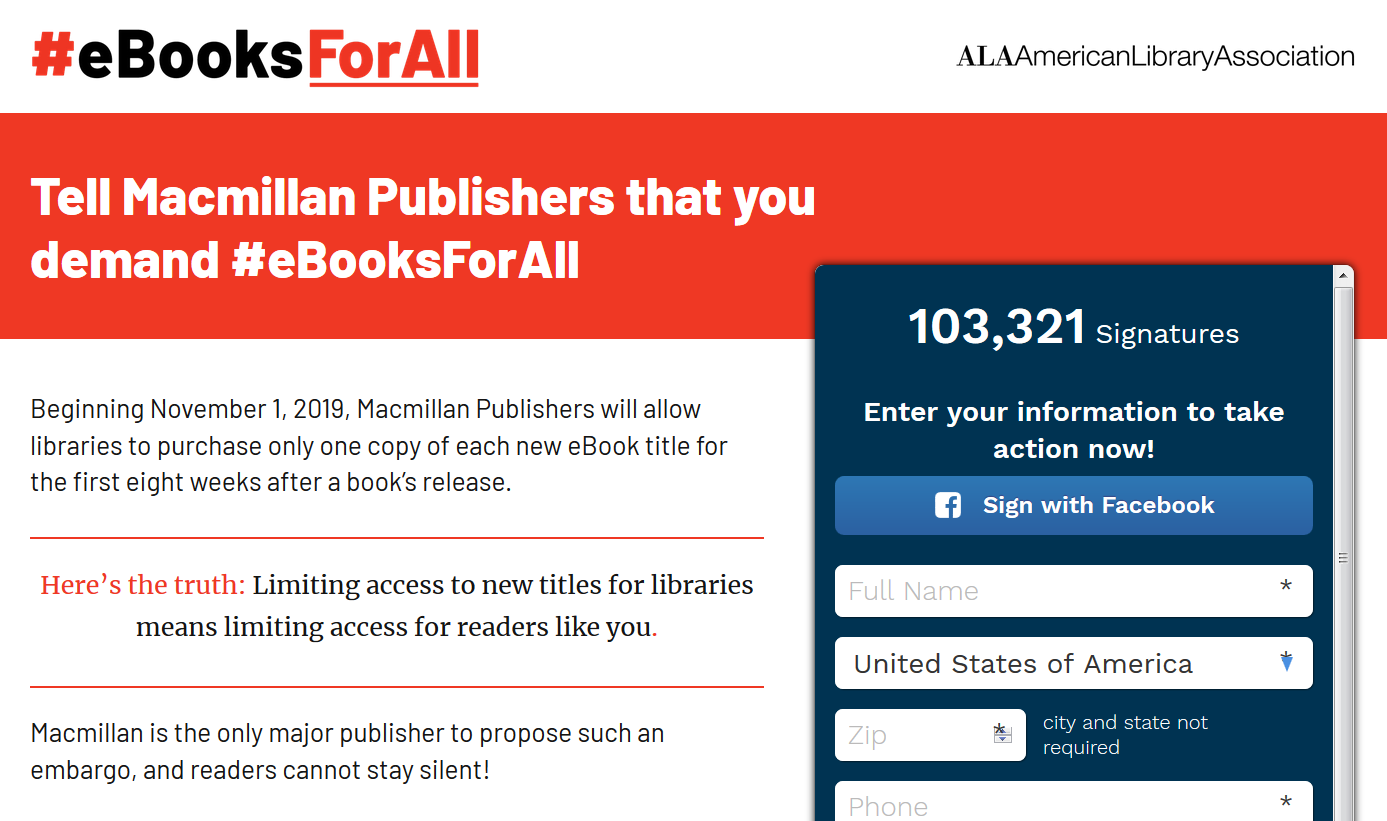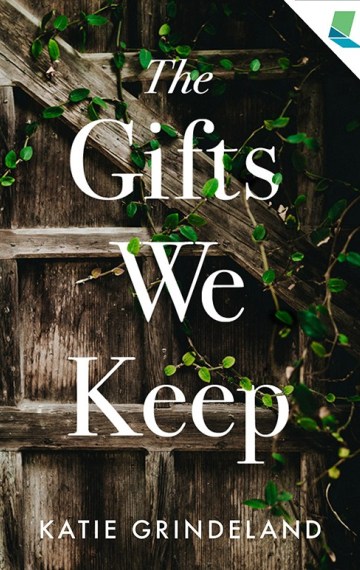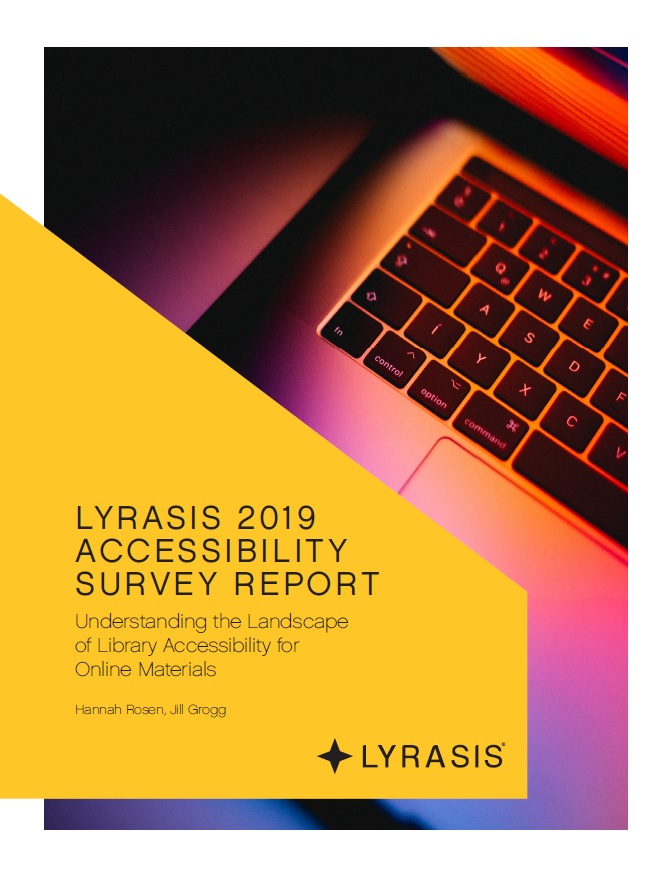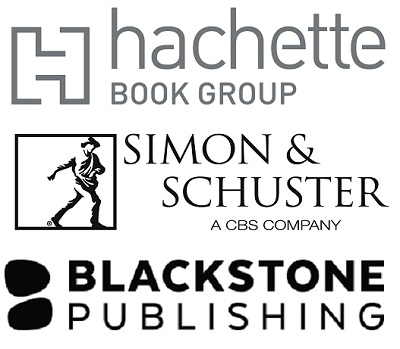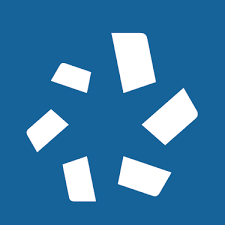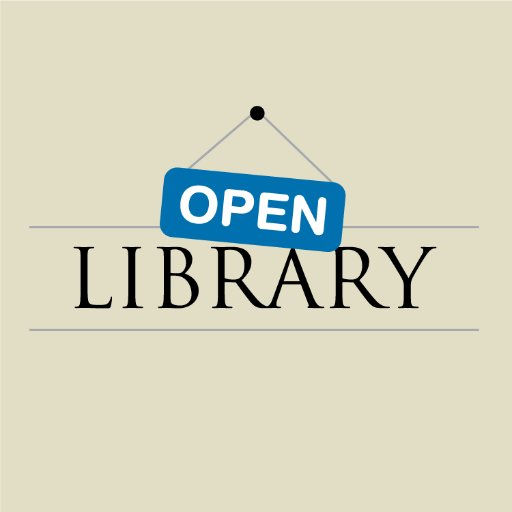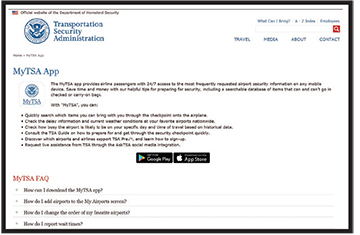Related
Over 60 percent of libraries are currently evaluating or planning for artificial intelligence (AI) implementation, according to a global survey of more than 1,500 librarians by Clarivate, the parent company of ProQuest, Ex Libris, Web of Science, and more. According to Clarivate’s first “Pulse of the Library” report, which combines feedback from the global survey and qualitative interviews of librarians working at academic, public, and national libraries, “the potential rise of AI adoption in the coming year is high."
On September 4, the United States Second Circuit Court of Appeals affirmed a March 2023 ruling that the Internet Archive’s (IA) program of scanning print books and distributing digital copies on a one print-book, one-ebook, one-user basis for free is not protected by fair use doctrine. The ruling was the result of a lawsuit filed by Hachette Book Group, HarperCollins, John Wiley & Sons, and Penguin Random House in June 2020.
Chicago Mayor Brandon Johnson and the Chicago Public Library (CPL) on August 15 announced the launch of “Chicago Book-Wrapped,” a new popup initiative offering instant access to a curated collection of ebooks and e-audiobooks with no hold times or library card requirements during special events in Chicago. The initial collection was curated to celebrate the Democratic National Convention.
Dr. Colleen Shogan took the oath of office as the 11th Archivist of the United States—the chief administrator of the National Archives and Records Administration (NARA)—in May 2023, succeeding former Archivist David Ferriero. She is the first woman to permanently hold the role. LJ caught up with Shogan to hear about her national tour of presidential libraries, NARA’s stepped-up digitization efforts, and preserving the record of presidential cat Socks.
The Digital Public Library of America (DPLA) and the Independent Publishers Group (IPG) today announced a new model that will give libraries ownership rights to ebooks purchased from Austin Macauley, Arcadia Publishing, Dynamite Entertainment, Dover Publications, JMS Books, and dozens of other independent publishers.
Several major companies—including Clarivate, EBSCO, OCLC, and OverDrive—are introducing new AI tools and features that will impact researchers, patrons, and library work directly.
The U.S. Department of Commerce’s National Telecommunications and Information Administration (NTIA) on July 24 announced the availability of almost $1 billion in competitive grant funding for programs that “support efforts to achieve digital equity, promote digital inclusion activities, and spur greater adoption and meaningful use of broadband,” according to a notice of funding opportunity posted by the agency. Application materials are available on NTIA’s BroadbandUSA website, and must be submitted through the NTIA Grants Portal by September 23.
The U.S. Federal Communications Commission (FCC) on July 18 voted to allow libraries and schools to use funding from the federal E-rate program to purchase Wi-Fi hotspots for lending. A component of FCC Chair Jessica Rosenworcel’s Learn Without Limits proposal—which was announced at the American Library Association’s (ALA) 2023 Annual Conference in Chicago—integration of hotspots into the program was aimed at responding to increasing connectivity needs and modernizing the E-rate program.
The American Library Association’s 2024 annual conference and exposition included many announcements from library vendors. Here’s a roundup of some of the news from this year’s show floor.
This year’s standout selections from the American Library Association’s Government Documents Roundtable.
A pair of bills making their way through the Connecticut state legislature both aim to set parameters on the licensing terms and contracts for ebooks and e-audiobooks that libraries will be able to accept from publishers and aggregators. The bills are the legislature’s most recent attempt to make publishers offer ebooks and e-audiobooks to the state’s libraries on more favorable terms.
Michael Reynolds, editor-in-chief of Europa Editions, saw libraries and publishers as star-crossed lovers that have been kept far apart for as long as possible, finally meeting in one room in Columbus, OH, at IndieLib, a conference hosted by the Independent Publishers Caucus and the Digital Public Library of America on April 2.
On Saturday, March 16, a standing-room-only crowd—especially notable for one of the first warm days of spring and the day of New York City’s St. Patrick’s Day parade—packed into Queens Public Library's (QPL) Queensbridge Tech Lab, a makerspace in the Long Island City neighborhood of Queens. Drawing them to the space was the Queens Name Explorer Edit-a-Thon, hosted by QPL’s Memory Project, Wikimedia NYC, OpenStreetMap US, and Urban Archive.
On January 22, the Library of Congress (LOC) announced the launch of the COVID-19 Archive Activation website, an online tool created in collaboration with national oral history nonprofit StoryCorps, which will allow members of the public to submit audio accounts of their pandemic experience. Anyone wishing to share their story or interview others can take part. These oral histories will become part of LOC’s American Folklife Center collections and be made accessible at archive.StoryCorps.org.
Artificial intelligence (AI) was a hot topic at this year’s American Library Association LibLearnX conference in Baltimore, January 19–22, with multiple presentations, panels, and workshops covering the technology and its impact on libraries and the people they serve, touching on both AI’s potential and its current flaws.
The Toronto Public Library (TPL) is in the final stages of recovering from a ransomware attack on October 28, 2023 that shut down the library’s internal network, website, and public computers. Although TPL managed to keep all of its 100 branches open and host programs throughout the ordeal, patrons were unable to access their library accounts online or use the library’s computers for more than two months.
A project to record the memories of residents in King County, WA—particularly Asian Americans displaced during World War II—is set to begin soon. King County Library System was awarded an $800,000 Mellon Foundation grant that will be used to hire a staffer to oversee a project that will create memory labs at two different locations.
From the first known caricature of Abraham Lincoln to a Pulitzer Prize–winning cartoon satirizing the Tammany Hall political machine, the Michael and Susan Kahn Political Cartoon Collection, now at UCLA, contains thousands of individual images, periodicals, books, and ephemera dating back to the late 17th century.
People 40 and younger are using public libraries, often at higher rates compared with older generations even when they don’t define themselves as readers, according to Gen Z and Millennials: How They Use Public Libraries and Identify Through Media Use, a survey and report by Kathi Inman Berens and Rachel Noorda, both from Portland State University.
Recent announcements from Project MUSE, Clarivate, and other vendors, as well as Cornell's arXiv, the Bruce Springsteen Archives and Center for American Music at Monmouth University, and more.
The Internet Archive (IA) in September submitted an appeal to the summary judgment against them in the Hachette v. Internet Archive copyright case, and IA is now asking the Second Court of Appeals for a deadline of December 15 for submitting its opening brief, IA Senior Policy Counsel Lila Bailey announced during the organization’s Virtual Library Leaders Forum earlier this month.
OpenAI’s ChatGPT has been a hot topic ever since it debuted to the public seven months ago. So much so that the American Library Association’s (ALA) Core division decided to forgo its traditional wide-ranging approach to its Top Tech Trends panel and focus exclusively on the potential benefits and problems of generative artificial intelligence (AI) during the “Core Top Technology Trends: Libraries Take on ChatGPT” session at the ALA Annual Conference, held June 22–27 in Chicago.
Demand for educational video resources continues to grow. Apps including Craft & Hobby, Creativebug, and Hiveclass, as well as streaming DIY video from OverDrive and hoopla, are helping patrons learn how to do everything from sewing to pickleball.
The American Library Association’s Government Documents Roundtable spotlights publications reflecting contemporary top-of-mind issues.
In a blow to the Internet Archive’s (IA) Open Library project and potentially to the concept of controlled digital lending (CDL), Judge John Koeltl of the United States District Court in the Southern District of New York on March 24 granted a summary judgment in favor of Hachette Book Group, HarperCollins, John Wiley & Sons, and Penguin Random House in their lawsuit against IA. The lawsuit was filed on June 1, 2020, in response to the March 24 launch of IA’s “National Emergency Library,” which temporarily offered unlimited simultaneous access to IA’s collection of 1.4 million digitized books during the initial wave of the COVID-19 pandemic, when many K–12, public, and academic libraries had been suddenly closed.
Many academic librarians believe context matters when artificial intelligence (AI) tools such as ChatGPT are used by students and faculty to assist with their work, according to “AI in Higher Education: The Librarians’ Perspectives,” a recent survey of 125 librarians published this month by Helper Systems. While only eight percent of respondents said that they believe it is cheating when students use AI products for research—compared with 49 percent who said it was not—42 percent said that it was “somewhat” cheating.
The Digital Public Library of America (DPLA) this month received a $750,000 grant from the Alfred P. Sloan Foundation to fund a multi-year effort to connect the digital collections of libraries, museums, universities, and other American cultural heritage institutions with Wikipedia.
Hiveclass, a startup company building a “digital encyclopedia of youth sports training,” has been partnering with libraries throughout the United States to offer teens and youth access to its mobile-friendly database of professionally shot, athlete-led instructional videos on soccer, basketball, tennis, dance, self-defense, volleyball, and more.
Since April, Brooklyn Public Library’s (BPL) Books Unbanned program has offered free library cards to teens and young adults across the United States who live in communities impacted by book bans, enabling them to access the library’s collection of more than 500,000 ebooks, e-audiobooks, digital magazines, and more. BPL Chief Librarian Nick Higgins recently talked to LJ about how the idea for the program originated and how it has grown during the past six months.
On August 25, the White House Office of Science and Technology Policy (OSTP) released new guidance calling for all federally funded research to be made available to the public for free access and use upon publication. The memorandum on Ensuring Free, Immediate, and Equitable Access to Federally Funded Research advises all federal agencies to eliminate the current 12-month embargo period on the outputs of taxpayer-supported research and the data that supports it, to establish transparent procedures in doing so, and to coordinate with OSTP to ensure its equitable delivery.
In February, after being alerted to the issue by a group of Massachusetts librarians, Library Freedom Project and Library Futures released a joint statement demanding accountability from Midwest Tape President and Hoopla founder Jeff Jankowski about hateful content and disinformation regarding COVID-19, the Holocaust, LGBTQIA+ people, and other topics on his company’s massively popular electronic content platform for public libraries. Six months later, there is still a great deal of disinformation to be found in Hoopla’s collection on topics ranging from LGBTQIA+ experiences to reproductive health to vaccines.
#NoTechforICE was started by the national Latinx and Chicanx social justice advocacy group Mijente in 2018, when it became clear that government agencies such as ICE and CBP were purchasing public, private, and commercial data to gather information to aid in the sweeps and deportations of undocumented immigrants. Two companies that have entered into contracts with ICE, LexisNexis and Thomson Reuters—which owns LexisNexis competitor Westlaw—are staples of college and university database subscriptions, and the campaign has caught the attention of academic librarians nationwide.
On June 7 the Maryland State Library Agency (MSLA) and Prince George’s County Memorial Library System (PGCMLS) announced the beta launch of the Guide to Indigenous Maryland, a mobile app (for iOS and Android) and website that enable Marylanders—and users worldwide—to learn about the history of local Native and Indigenous people (PGCMLS's preferred wording uses both terms) and how their heritage continues to influence contemporary life in the state. The free educational resource combines 21 curated sites featuring information on Native American and Indigenous geography and heritage, local history, and present-day life in Maryland.
Vendors offer a variety of training options and practical tips to ensure librarians and patrons get the most out of their databases.
E-access was a hot topic at the Public Library Association (PLA) 2022 conference, held in Portland, OR, from March 23–25. Programs examining points along the pipeline from licensing to broadband to innovative infrastructure were well attended.
In February, collection development librarians from U.S. public libraries pointed out on listservs and social media that several fascist ebooks—including ebooks that deny the Holocaust, a sympathetic biography of Hitler, and a new English translation of a title written by Nazi officer—were available for patrons to download on hoopla and were surfacing in searches alongside other nonfiction content. One of the titles was also available for libraries to license via OverDrive Marketplace.
There are many ways to showcase special collections: social media, newsletters, and blog posts; online and in-person exhibits; and both physical and digital catalogues and books. The Massachusetts Institute of Technology (MIT) Libraries’ Distinctive Collections has upped the creativity factor with an immersive video game, “A Lab of One’s Own,” that allows players to discover archival materials telling the stories of women from MIT’s history.
Michigan’s Kent District Library (KDL) is preparing to launch KDL Vibes, a free streaming platform created to showcase local music.
A launch date has not yet been announced, but OverDrive has been recruiting librarian advisors from public, academic, and K–12 libraries to offer input and refine Readtelligence—an upcoming suite of tools for ebook selection and curation developed by the company using artificial intelligence (AI) and deep learning tools to analyze every ebook in the OverDrive Marketplace.
The 2020 Public Library Technology Survey presents a snapshot of the vital technology services that libraries provide their communities, areas of disparity between urban and rural libraries, and the challenges that institutions of all sizes face in expanding or enhancing technology services.
Gale, part of Cengage Group, on September 8 announced the launch Gale Presents: Excel Adult High School in partnership with Excel Education Systems. With accreditation through Cognia, the nonprofit NGO that serves more than 36,000 schools globally, the program, a successor to Gale’s previous Career Online High School, is designed to enable adults to earn a certified high school diploma entirely online.
COVID-19 added new urgency and faculty awareness to the equity and access issues Open Educational Resources are designed to address.
During the American Library Association (ALA) Virtual Annual Meeting, Lauren Geiger, metadata librarian, and Emily D. Harrison, digital projects specialist, both from Mississippi State University Libraries, discussed how to ensure that accessibility in digital collections is not limited to discoverability.
“The importance of providing equal access to information and learning experiences is nothing new, yet we consistently find that digital resources and technologies fall short” of accessibility for patrons and students with print and other disabilities, Trisha Prevett, eLearning librarian for Southern New Hampshire University said to open the "Born Accessible: Creating Equal Digital Learning Experiences for All" panel at the American Library Association (ALA) 2021 Annual Conference and Exhibition, held virtually from June 23–29. “We must ensure that libraries are providing resources that are truly accessible for all.”
During the American Library Association (ALA) Virtual Annual Meeting, attendees listened to an on-demand session featuring a panel of speakers who discussed partnering to amplify underrepresented and unheard voices using digital scholarship.
The popularity of public library streaming media entertainment spiked during the pandemic. What’s next?
On May 17, Clarivate announced a definitive agreement to acquire ProQuest from Cambridge Information Group for $5.3 billion. Pending regulatory approvals, the transaction is expected to close during the third quarter of 2021.
On May 18, Digital Public Library of America (DPLA) signed an agreement with Amazon Publishing that will make all of the latter’s 10,000 ebooks and audiobooks available to libraries via the DPLA Exchange content marketplace. This is the first time that ebooks and audiobooks from Amazon Publishing have been made available to libraries.
Festival of Books features Native American authors Rigoberto González, Danielle Geller, and more. The Wolfson History Prize announced, and Louise Erdrich is named the 2021 Aspen Words Literary Prize Winner. Margaret Wander Bonanno, author of several Star Trek books, dies at the age of 71. Ocean Prey by John Sandford, The Devil’s Hand by Jack Carr, On the House by John Boehner, and Empire of Pain by Patrick Radden Keefe top best sellers lists. Covers are revealed for Reckless Girls and Flowers for the Sea. New DC comics to cover new Superman and Supergirl series. The director of Game of Thrones is adapting Stone Junction by Jim Dodge for television.
With library branches closed or offering limited in-person services during much of 2020, that has often meant shifting to virtual offerings. But many people faced challenges accessing those online resources, according to “Public Libraries and the Pandemic: Digital Shifts and Disparities to Overcome,” a report published this month by New America, a Washington D.C.–based public policy think tank.
Project MUSE has released "MUSE in Focus: Roots of the Attack on Democracy,” insurance analytics company ValChoice has extended a free unlimited access subscription for libraries, and Kanopy expects the growth of streaming video services to continue based on a recent survey of librarians.
AHC Library enables students to access digital course reserves from any device, TLC Migrates to Oracle Cloud, and ProQuest Launches a new text and data mining visualization interface.
Library distributor Baker & Taylor announced on October 28 that it would be returning to the academic market as a full-service vendor.
On October 12, a group of partners from different corners of the book world launched Book the Vote, a website devoted to combating disinformation and increasing voter turnout this election season. Penguin Random House (PRH), together with freedom of expression nonprofit PEN America, voter participation nonprofit When We All Vote, and literary apparel company Out of Print (owned by PRH), brings a variety of content—videos from PRH authors, relevant titles for all ages, voter registration information, and resources to increase voter engagement and general understanding of civic topics.
With most museums still closed, digital exhibits offer opportunities to consider outbreaks past and present from a safe distance.
On July 27, the Internet Archive (IA) responded to a copyright infringement lawsuit filed by publishers Hachette, HarperCollins, Wiley, and Penguin Random House by filing a brief in the U.S. Southern District of New York that denies all charges of willful infringement.
ValChoice, an independent data analytics company focused on the U.S. insurance industry, is offering public and academic libraries permanent, unlimited access to online calculators, insurance company ratings, tutorials and “how-to” videos, worksheets, and other tools designed to help users understand how insurance—such as car and home insurance—is priced, and how to decide on policies based on their age, deductibles, coverage limits, and other factors.
In partnership with 10 state libraries, BiblioLabs has announced that more than 4,000 digital comics, graphic novels, and children’s materials will be available for free, unlimited simultaneous use through August 31. In addition, the library partners will be participating in a new Virtual Library Comic Convention scheduled to be held on July 30.
Online meetings have become ubiquitous for many of us. Once our library started offering Virtual Meeting Rooms to the public via Zoom, we immediately began fielding questions on how to best structure online events. Since how an event is structured has such a large impact on its success, we wanted to share some best practices we’ve learned.
The death of George Floyd at the hands of Minneapolis police officers not only resulted in protests throughout the country, it also forced many non-Black Americans to finally grapple with the realization that Black lives are systemically devalued. To help readers learn to recognize and combat systemic racism, several institutions and organizations are making resources readily available.
As the coronavirus makes internet access even more crucial for schooling, many jobs, and applying for unemployment, library staff have been working on creative solutions to bring access to thousands who would otherwise be without, moving beyond Wi-Fi in parking lots and cultivating external partnerships.
As public libraries do more and more in times of crisis to fill gaps in our social safety net, it is time to rethink how publishers and content providers relate and do business with public libraries and their customers. How can those relationships be retooled and reimagined to provide outcomes that are more beneficial for all?
This outstanding one-stop gateway is invaluable, enabling users to find books, journals, videos, audios, dissertations, and more without having to switch platforms. Despite the overwhelming amount of content, this offering is intuitive.
Well organized and easy to search, it features a great breadth and depth of content from highly regarded contributors; high schoolers and general consumers of science information will be comfortable using this database.
With most library buildings temporarily closed to combat the COVID-19 pandemic, some libraries are combining the need for meeting space with the shift to digital service delivery.
Demand for popular ebooks, digital audiobooks, comics, music, and streaming video has spiked as library branches close and patrons are asked to stay at home due to the COVID-19 pandemic.
Macmillan yesterday announced that it would discontinue its embargo period, which had prohibited libraries from purchasing ebook licenses for newly published titles for eight weeks.
Nearly four months after Macmillan enacted its 60-day embargo on library ebooks, the state of digital collections is still a subject of intense interest in the field. This played out at the Public Library Association (PLA) conference, held in Nashville, TN, on 25–29, when the panel “Building the Case for #eBooksForAll” saw attendance of close to 300 conferencegoers.
The Panorama Project—a library and publishing industry initiative that aims to quantify the impact that libraries have on book discovery, author brand development, and publisher sales—in February released its 2019 annual report and previewed two initiatives for 2020.
Public libraries are using new vendor solutions to enhance local schools’ ebook and audiobook collections, creating a new generation of library users.
An international team of Medievalists has released a free android and iOS app of Geoffrey Chaucer’s The Canterbury Tales, featuring the digitized Hengwrt Chaucer manuscript and an authentic 45-minute dramatic reading of the General Prologue.
In a candid and occasionally contentious “Ask Me Anything” session on Saturday, January 25 at the 2020 American Library Association (ALA) Midwinter Meeting in Philadelphia, Macmillan CEO John Sargent discussed the publisher’s two-month embargo period for library ebooks, which went into effect on November 1.
Global investment firm KKR on December 24 announced the signing of a definitive agreement to acquire ebook provider OverDrive from Japanese online retailer Rakuten.
Kevin Sayar, previously at ProQuest, was named the new CEO of streaming video platform Kanopy in October. LJ caught up with him at the Charleston Library Conference to hear his thoughts on early days at Kanopy.
The Internet Archive (IA) on November 6 announced that its longtime not-for-profit partner, Better World Libraries, had acquired Better World Books. When libraries and other organizations weed or deaccession titles and donate to Better World Books, selected titles will now be directed into IA’s massive book digitization program.
From more intuitive searching to digital circulation of formerly print-only reference materials and to more materials on marginalized populations, trends in reference reflect library users’ changing needs and expectations.
Digitizing, organizing, and contextualizing primary sources from libraries and archives presents unique challenges and rich opportunities.
On November 1, Macmillan enacted its eight-week embargo period for new library ebook licenses. Many libraries have responded by announcing boycotts, as library organizations continue outreach and advocacy efforts.
Dated October 15, ALA’s report to Congress summarizes challenges facing the library field with regard to ebooks, streaming content, the pricing of digital academic journal subscriptions, anti-competitive behavior in digital textbook publishing, and the publishing industry’s capture and use of student data.
The American Library Association and Public Library Association last month launched a public outreach campaign to mobilize opposition to Macmillan’s new eight-week embargo period for library ebook purchases. The campaign has gained traction online, with an eBooksForAll.org petition demanding the cancellation of the embargo garnering more than 103,000 signatures at press time.
John Rothman, director of the New York Times’ corporate archives and creator of the New York Times Information Bank, an early electronic news repository, died on September 26 of a stroke at the age of 95.
The publishing and book retailing ecosystem is changing rapidly, but public libraries continue to offer substantial opportunities to promote authors and books, and it is vital that publishers recognize libraries as important partners, a panel of library leaders said to an audience of publishing executives during Baker & Taylor’s Publisher Summit 2019, held September 24 in White Plains, NY.
Multnomah County Library, OR, (MCL) launched a partnership with Portland State University’s Ooligan Press to publish and distribute print copies of ebooks written by local authors and selected during MCL’s annual Library Writers Project.
Many libraries have established formal or informal policies to ensure the accessibility of licensed and library-created digital content, but libraries also report uncertainty regarding the responsibilities for auditing and enforcing such policies, according to the “LYRASIS 2019 Accessibility Survey Report.”
I join those from the library community urging a reconsideration of Macmillan’s recent decision to limit libraries to one copy of new ebooks for the first two months of publication. This one size fits all embargo is, at best, an insensitive blockade. Libraries are key engines of book culture, and willing collaborators in the process of finding a path to access.
Last month, the Panorama Project announced that Guy LeCharles Gonzalez would be taking over as Project Lead. The initiative aims to quantify the impact that libraries have on the publishing ecosystem—specifically the digital publishing ecosystem—and Gonzalez brings a new perspective to the project shaped by his 25 year career in the library and publishing fields.
Following a year-long test with its Tor imprint, Macmillan today announced a two-month embargo on sales of new ebook titles to libraries across all of its imprints.
Within the past month, Hachette Book Group replaced its perpetual licensing model for libraries with a two-year ebook and digital audiobook lending model. Simon & Schuster eliminated perpetual licensing on digital audiobooks and replaced it with two-year licensing, announced per-circ pricing for select ebook titles, and made additional changes to its library ebook model. And audiobook provider Blackstone Publishing announced a new 90-day embargo on sales to libraries.
Vendors at this year’s American Library Association annual conference in Washington, DC launched new products, debuted significant updates, and announced winners of grants and awards. Here are a few items that LJ had an opportunity to learn about in person.
Establishing what archivists hope will become a recurring, comprehensive training program, the Indiana University Libraries Moving Image Archive hosted the first Biennial Audio-Visual Archival Summer School, May 13–26, in collaboration with the International Federation of Film Archives and the Coordinating Council of Audiovisual Archives Associations.
McGraw-Hill and Cengage on May 1 announced an all-stock merger. Paul Gazzollo, senior VP and global general manager of Gale Publishing, a Cengage company, told LJ that libraries can expect "business as usual at Gale"
The Internet Archive is seeking partners for its Open Libraries project. Recent contributors include Trent University, ON, which donated more than 250,000 books last year during the renovation of its Bata Library, and longtime project partner Boston Public Library (BPL), which donated its sound archives for digitization in 2017.
What's better than free? Our resident InfoDocket guru curates 2018's best gratis reference sites and apps.
ALREADY A SUBSCRIBER? LOG IN
We are currently offering this content for free. Sign up now to activate your personal profile, where you can save articles for future viewing
